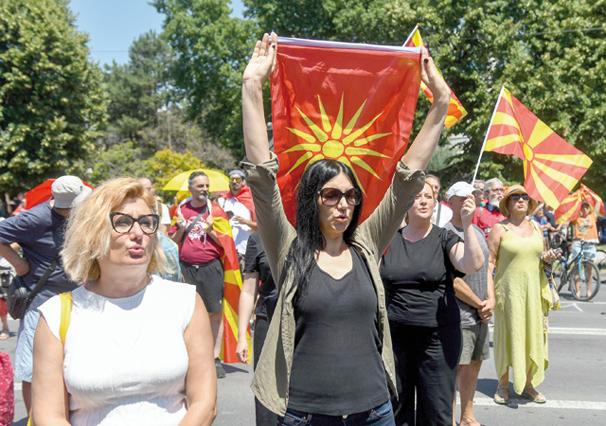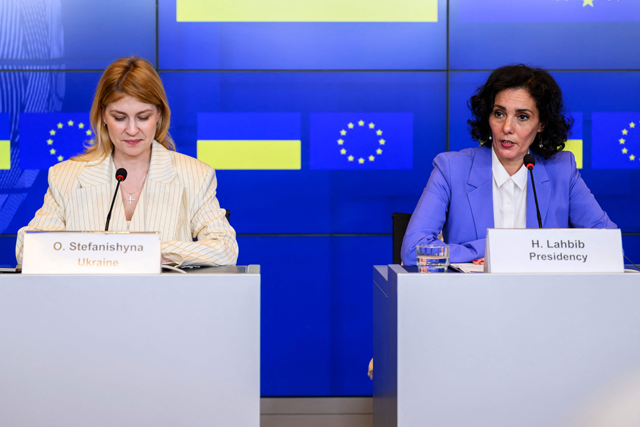You are here
EU leaders to debate Albania, North Macedonia accession bids
By AFP - Oct 16,2019 - Last updated at Oct 16,2019
LUXEMBOURG — EU leaders at a summit this week will consider bids by Albania and North Macedonia to start accession talks despite opposition from some member states, officials said on Tuesday.
Finnish Foreign Minister Tytti Tuppurainen, whose country holds the rotating EU presidency, said the issue was being put on the summit agenda after EU ministers failed to come to a decision.
“Unfortunately today [Tuesday], the council [of EU foreign ministers] was not able to reach a unanimous decision,” she said in Luxembourg, ahead of the summit on Thursday and Friday.
She added: “I regret that. However, the discussion was useful to clarify the positions of member states.”
For the talks with Albania and North Macedonia to start, all EU countries have to agree.
French European Affairs Minister Amelie de Montchalin said her country was against opening accession talks for the two Western Balkan countries.
“The [EU] countries have very divergent positions,” she told AFP.
She said that The Netherlands and Denmark also opposed Albania’s bid, and that France did not want to separate Albania’s case from that of North Macedonia — which has broader EU support — as suggested by Finland.
“Nobody said no,” she told reporters on leaving the meeting.
“France says it is not asking for anything new. We’re not saying no. We are just asking that criteria set back in June 2018 be fully applied.”
She highlighted needed reforms that she said Albania and North Macedonia had not yet completely met, such as setting up a special prosecutor’s office in Skopje.
She said a “very, very large majority” of EU countries supported a reform of the accession process.
France’s opposition has drawn anger from other EU countries.
One EU diplomat said France was isolated as the only country refusing to compromise on starting North Macedonia talks now and putting off a decision on Albania until March next year.
There are concerns that if the EU does not swiftly make good on its promise to start the membership process with those two countries, other powers — Russia or China — might swoop in to bring them into their orbit.
Germany’s minister for European affairs, Michael Roth, warned a “possible political vacuum” in the region “will be filled by other powers that certainly have little in common with democracy and the rule of law”.
Critics of EU enlargement, however, say it risks importing problems into the bloc, pointing to the ongoing corruption and justice issues in Romania and Bulgaria, which joined in 2007.
Related Articles
BRUSSELS — Albania and North Macedonia took a step forward on their long road towards European Union membership on Tuesday, joining Balkan n
LUXEMBOURG — The European Union on Tuesday kicked off accession negotiations with Ukraine, setting the war-torn country on a long path towar
STRASBOURG, France — EU chief Ursula von der Leyen said Tuesday Brussels was recommending member states open formal membership talks with Bo

















